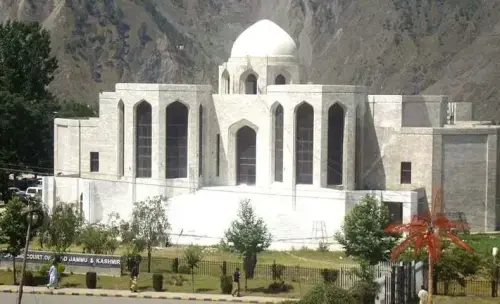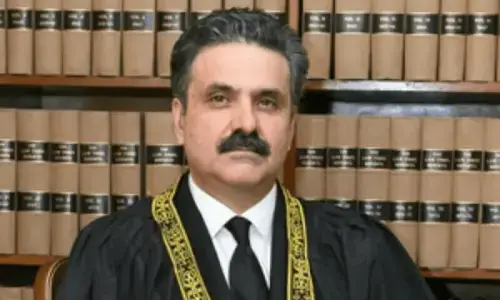ON Sept 21, 2023, more than a month after the dissolution of the National Assembly, the Election Commission of Pakistan (ECP) announced that, after deliberating on ‘delimitation’, they had decided that elections would be held in the last week of January 2024, ie, beyond the constitutionally mandated 90-day period.
The holding of timely elections in Pakistan has never been a foregone conclusion. Yet, unlike yesteryear, when dictators, showing their might, delayed elections, this time the ECP has decided to rely on ‘delimitations’, a ploy which is being used to defy Article 224(2) of the Constitution, which expressly provides that where an assembly is dissolved (before its actual term is completed) a general election shall be held within 90 days.
The ECP and, surprisingly, some political players argue that since the ‘census’ has taken place, the ECP is obligated to conduct ‘delimitations’, and that only after the completion of the process can the polls be held. The argument in support of ‘delimitations’ to delay polls stems from political expediency and has no basis in the law. Take the example of Article 224. The latter, in no uncertain terms, inter alia, asserts elections be held within 90 days and its results announced within 14 days of the polls. This makes it clear that the drafters of the Constitution wanted to ensure that Pakistanis are not deprived of the opportunity to be ruled by people of their choice for more than 90 days.
That’s not all. The much-talked of word ‘census’, that the ECP relies on, has been used merely thrice in the Constitution — twice in Article 51 and once as part of the Fourth Schedule, ie, the Federal Legislative List. Similarly, ‘delimitation’ appears four times in the Constitution — twice in Article 222 and twice in the Federal Legislative List.
Can the census be used to empower the ECP to ignore Article 224?
References in the Federal Legislative List are irrelevant and therefore need not be considered here. Article 51 details the number of seats which shall make up the National Assembly. Sub article (5) of the same, which uses the word ‘census’ twice, provides that the seats in the National Assembly be allocated to each province and Islamabad on the basis of the last official census. Similarly, Article 222 of the Constitution empowers the National Assembly to make laws, inter alia, with regard to delimitations, the preparation of election rolls and other electoral matters.
A review of Article 51 makes clear that as far as the electoral significance of the census is concerned, the same is used to determine the allocation of seats in the National Assembly and for the ECP to ensure appropriate delimitations. It is a fact that Census 2023 has been approved, but did parliament proceed to amend the provisions of Article 51(1) to increase or decrease the number of seats allotted to each province? The answer is no.
Now, if no such amendment has been made, can the census still be used to empower the ECP to ignore the express dictates of Article 224(2) of the Constitution? This is where the ECP reliance on Article 222 — which empowers parliament to legislate, inter alia, on matters related to delimitations — comes into the picture. They argue that the Elections Act, 2017 and the powers it grants to the ECP to conduct delimitation flow from Article 222 of the Constitution itself.
It not denied that Section 17 of the Election Act empowers the ECP to conduct the delimitation of constituencies of the national and provincial assemblies. Yet, a closer reading clarifies that the ECP’s powers with regard to delimitation are to be exercised “in accordance with the provisions of the Constitution”. This means that for all practical and legal purposes, the ECP is mandated to conduct delimitations such that elections are conducted within 90 days as required under Article 224(2) and Article 48(5) of the Constitution.
Even otherwise arguing that an act of parliament is to stand on the same pedestal as the Constitution simply because such act flows from the Constitution is nothing but a legal fallacy.
A combined reading of the Constitution and the Election Act makes it clear that the Constitution does not allow for a delay in polls beyond 90 days, irrespective of the pretext being floated. Yet, the caretaker set-up in Punjab and KP are examples of how the Constitution can conveniently be ignored with impunity.
Despite the doom and gloom, one hopes that the general elections of 2023 (as they should constitutionally be held this year) do not meet the same fate as elections in Punjab and KP and the Constitution is followed in letter and spirit so that an elected government embodying the will of the people of Pakistan is ‘allowed’ to steer this country towards much-needed prosperity.
The writer is a lawyer.
X (formerly Twitter): @sheheryarzaidi
Published in Dawn, October 7th, 2023





























